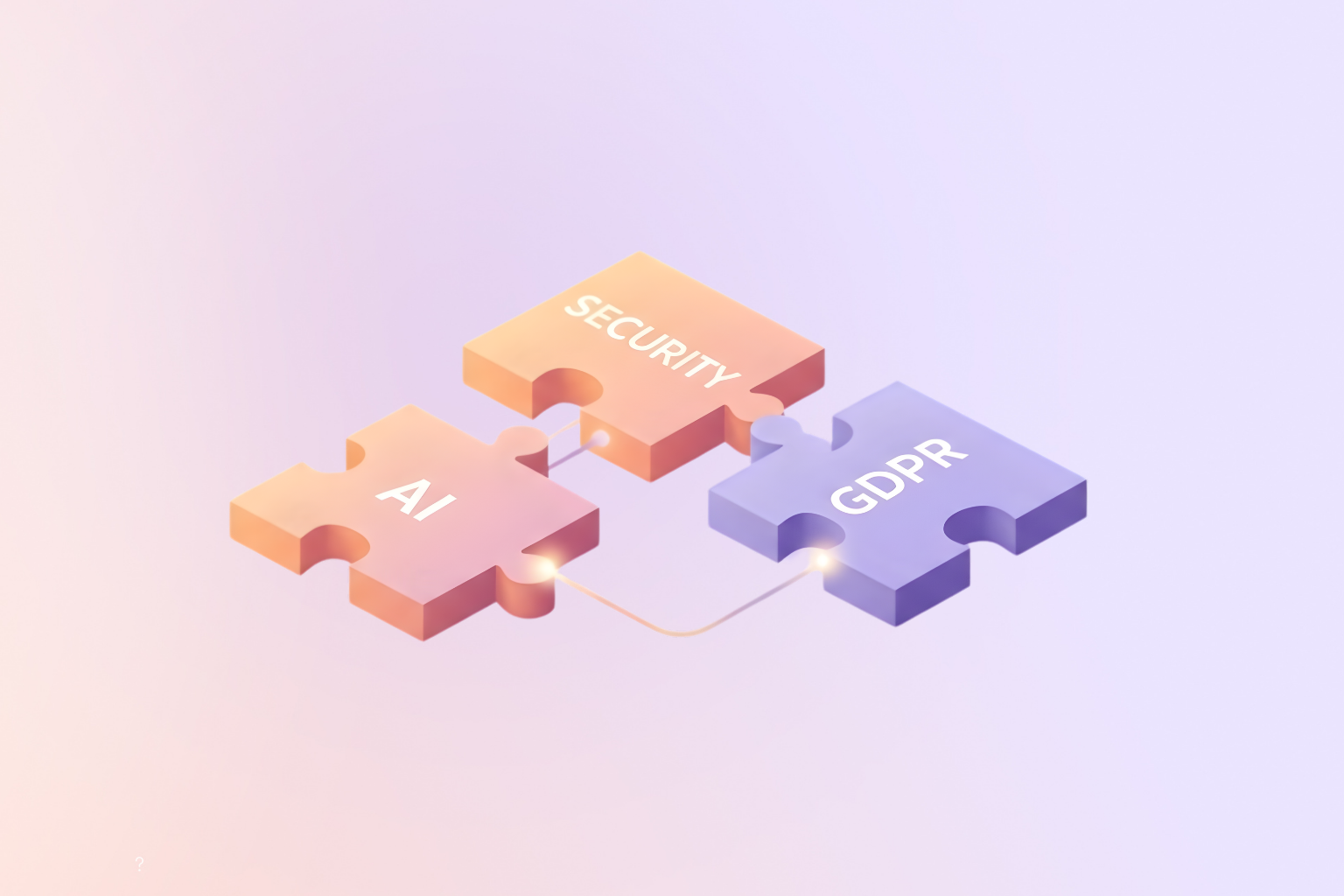Implement AI Agents GDPR-Compliantly – Focus on Security & Compliance

But especially in Europe, one rule is non-negotiable: without data protection, security, and governance, AI agents cannot be successfully implemented.
1. Fundamentals: Why Security & GDPR Matter
Before jumping into implementation, it’s worth understanding the framework.
GDPR Relevance:
AI agents often process personal data (e.g. applicant profiles, customer data, communication histories). This means they are subject to strict data protection rules.
Risk Factor: Shadow IT:
Employees might use AI tools without authorization, creating major risks for data security and compliance.
Governance & Trust:
Only organizations with clear rules in place will earn the trust of employees, customers, and regulators.
Conclusion:
AI agents are only beneficial when data protection and security are built in from the start.
2. Step-by-Step to Secure Implementation
Step 1: Clearly Define Use Cases
- Start with specific, well-defined processes (e.g. HR screening, IT support, customer service).
- Avoid the “big bang” approach – pilot projects deliver better results.
- Define your data types: Are the agents handling personal data, business data, or sensitive information?
Step 2: Prepare Data Foundations & Infrastructure
- Avoid data silos: AI agents reach their potential only when data from CRM, ERP, HR, or ticketing systems is accessible.
- Ensure data quality: Only clean, up-to-date data leads to accurate results.
- Consider hosting: Where is the data stored? Within the EU or abroad? GDPR compliance requires hosting with data residency inside the EU.
Step 3: Define Governance & Roles
- Access rights: Who can control, train, or monitor which agents?
- Audit trails: Every decision and action made by an agent must be transparently logged.
- Responsibilities: Assign data protection officers or AI leads to ensure accountability.
Step 4: Integrate Security
- Authentication & Authorization: Only authorized users should be able to launch agents or access results.
- Encryption: Data should be encrypted during transmission (TLS/SSL) and at rest.
- Monitoring: Continuous monitoring helps detect anomalies, errors, or misuse.
Step 5: Implement GDPR Requirements in Practice
- Privacy by Design: Data protection must be part of the agent architecture from day one.
- Data Minimization: Use only the data necessary for the specific use case.
- Consent: If personal data is processed, explicit consent must be obtained.
- Right to Access & Erasure: Agents must be designed so affected individuals can access or request deletion of their data.
3. Best Practices from Real-World Cases
Example 1: HR Agent at a Financial Services Provider
A company introduced an AI agent for applicant pre-screening.
Implementation: All applicant data was pseudonymized before processing.
👉 Result: 35% faster selection processes with full GDPR compliance.
Example 2: Customer Service Agent in E-Commerce
An online retailer used AI agents to handle customer support requests.
Implementation: Data stored exclusively on EU servers, with audit trails for every interaction.
👉 Result: 50% faster response times and full transparency in data protection requests.
4. Avoiding Risks – Common Mistakes
- Unclear Responsibilities: Without assigned owners, data protection issues may go unnoticed.
- Lack of Transparency: If users don’t realize they’re interacting with an AI agent, trust can erode.
- No Compliance Review: Launching new use cases without legal checks risks hefty fines.
- Tech-Only Focus: Security isn’t just IT—it’s also about organization and culture.
5. Business Impact: Why Secure Implementation Pays Off
Legal Security: Avoid GDPR fines (up to €20 million or 4% of annual global turnover).
Customer Advantage: Companies with transparent AI practices build stronger trust.
Scalability: Only secure and compliant systems can scale sustainably.
Employer Branding: Employees are more likely to accept AI agents when fairness and privacy are guaranteed.
👉 Early investment in security and governance creates the foundation for lasting competitiveness.
Conclusion
Implementing AI agents opens huge opportunities — but only with clear strategy, governance, and GDPR compliance can these potentials be realized safely.
Companies that start small, embed data protection, and systematically build security benefit twice: from measurable efficiency gains and from trust among customers, employees, and regulators.
➡️ Book a Demo Experience how AI agents can be securely integrated into your company.
➡️ Download Whitepaper “Successfully & GDPR-Compliantly Implementing AI Agents.”
FAQ
Are AI agents automatically GDPR-compliant?
No. Compliance depends on implementation, hosting, and governance.
What kind of data can AI agents process?
Only data that has a legal basis (e.g. contract, consent, legitimate interest).
How can transparency be ensured?
Clearly communicate when users are interacting with an AI agent.
Must companies appoint a data protection officer?
Yes, if they regularly process personal data on a large scale.
What are the risks of non-compliance?
Fines up to €20 million or 4% of annual global turnover.
What distinguishes GDPR-compliant solutions from insecure ones?
- EU-based hosting
- Access control
- Audit trails
- Clear governance structures
How should I get started?
Follow us on LinkedIn